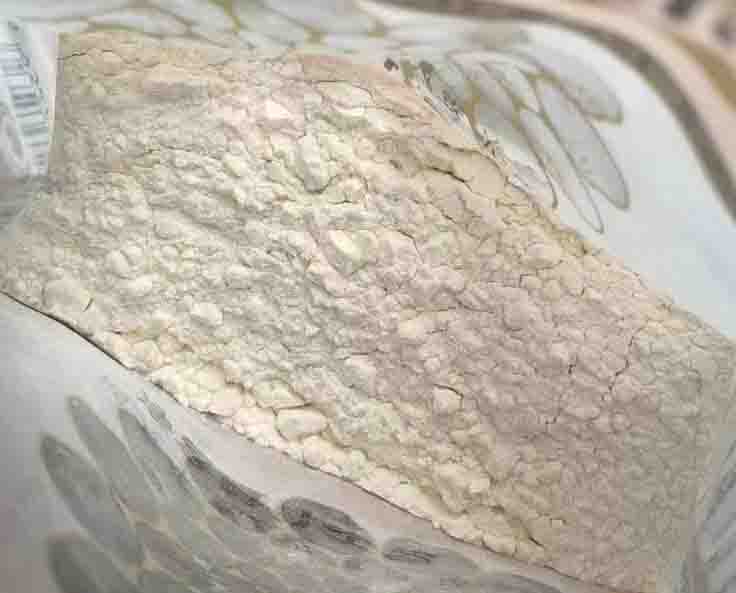Bentonite Drilling Mud
The use of organophilic clay bentonite is to complete the drilling project. During the entire oil field drilling operation, the drilling mud can ensure that the entire drilling process has minimal impact on the formation occupied by the borehole.
Bentonite in Drilling Mud
The viscosity of drilling fluid can be increased by adding organoclay bentonite. Some users will also reduce its viscosity by adding water or some other chemical diluents.
As the drilling depth continues to deepen and increase, Bentonite Drilling Mud may be necessary to More viscous drilling fluid, so in the preparation of drilling fluid, many people choose Organo clay Bentonite Drilling Mud as its thickening additive.
During the entire drilling process, people also need to pay great attention to the flow characteristics of the drilling fluid. Is this why? Choose to use organic bentonite clay. Can solve the needs of rheological properties.
Bentonite Clay is Used to Make the “Mud” in Mud Rotary Oil Well Drilling
Montmorillonite is an important raw material for Bentonite Drilling Mud. It is mainly montmorillonite composed of single microcrystals, with the largest size less than two microns.
Drilling Mud: 200 Mesh Sodium Bentonite Powder
As we all know, some of the most important indicators in drilling mud are its viscosity, density and chemical composition, as well as its ability to reduce fluid loss. From this, we can control the stability of the entire formula by adding some other drilling mud additives. At the same time, when drilling, its borehole must be completely open during the operation.
Mixing Bentonite Mud in the Proper Proportions and with the Proper Additives Will Ensure the Best Drilling Fluid for Mud Rotary Drilling.
Adding organic bentonite to the drilling fluid can lubricate and cool the drill bit and drill string, suspend and bring out some cuttings, making the entire operation levitating and stable.
Organo Bentonite Drilling Mud has very unique chemical properties. Many people on the market know that it has very good water absorption capacity. During the drilling process, when bentonite is mixed with the drilling fluid, it can prevent the collapse of the hole wall, so many people use this This coating is called filter cake.
Drilling Deeper with Bentonite
The most common use of bentonite is in drilling fluids. It can generate hydrostatic pressure in the borehole, which will hinder the penetration of fluids and gases. It can also lubricate and cool the drill bit. At the same time, Bentonite Drilling Mud can also produce good thixotropic properties and rheology. performance.
The Use of Bentonite in Drilling Mud
The reason why organic bentonite is added to the drilling fluid is because the thickening effect can bring more cuttings out of the well, which can effectively discharge solids from the bottom of the hole. So you don’t have to worry about the well wall collapsing when the drilling fluid flows.
Generally speaking, when bentonite is added to drilling fluid, it can make the entire drilling fluid thicker and can produce a solidification effect to a certain extent. These two characteristics are important for the safety of drilling during the drilling process. Sex is very beneficial.
Bentonite and the Use of Drilling Mud
Organic bentonite is very friendly to the entire environment because it is a non-dangerous product. When you configure the entire drilling fluid, you only need to add 50 kilograms of bentonite per cubic meter of water. However, in some places where drilling is relatively deep, When drilling deep wells, the amount of Bentonite Drilling Mud used is less than 15 cubic meters.
In other words, organic bentonite can be compatible with various chemicals. After fine grinding (200 mesh), high-quality organic bentonite with thickening effect, filter loss control ability and gel properties can be prepared.
Bentonite for drilling fluids
Organic bentonite can also reduce the wear and tear on drilling equipment, and greatly plays a role in maintaining the safe operation of the equipment. This is because bentonite has a very low sand content in the drilling fluid. At the same time, it has particularly good viscoplasticity and special filtration properties. Obviously, the well wall can be cleaned better during drilling.
Grinding and Classifying Systems for Bentonite
The strongest chemical characteristic of organobentonite is still its suspension ability, because this ability allows it to effectively clean rock cuttings and increase the stability of the well wall, making it very safe during the entire construction process. This suspension ability is why bentonite forms a better gel effect when mixed with water. It can also cool and lubricate the drill bit. Therefore, in the drilling fluid, during the construction process, the clay suspension is circulated to prevent the cuttings from sinking, thus avoiding clogging in the borehole and thus preventing accidents.
What is Bentonite? | Bentonite clay drilling mud
We are a Chinese bentonite drilling mud supplier, providing organic bentonite used in high-yield gel drilling mud. The organic bentonite we produce can be cut and effectively transported to the surface during the drilling process, maintaining the cleanliness and stability of the well wall during the entire drilling period, lubrication of the equipment, and minimizing the risk of damage during the drilling process. Environmental impact, our organic bentonite gel is packaged in paper bags of 50 pounds each.
Sodium Bentonite
Therefore, to produce high-quality drilling fluid, organic bentonite is a necessary chemical additive, which determines the success or failure of your drilling site.
Our organic clay bentonite products have been recognized by the vast majority of our customers and help They have achieved great success. We are constantly developing and improving the performance of our organic bentonite.
This is why we can currently have an important influence in the world. If you are interested in our organic bentonite, if you want to Applying our organic bentonite clay to your drilling mud, then contacting us is the right decision and choice, because our technical department will go all out to guide you to complete your project, whether it is technical guidance or The cooperation in after-sales service will not let you down.
Extra High Yield Bentonite , 50 lb. Bag
When bentonite clay slurry is used in drilling fluids, it can also prevent corrosion. It can effectively hinder the penetration of fluids and gases. This is because organic bentonite can generate good water inlet pressure. When you use our organic bentonite drilling fluid, it exhibits a thixotropic reaction, which is a property that occurs when you stir it into water. This sudden change will prevent it from falling back into the bore when your cleaning pump is idle.
DRILLING FLUIDS BASED ON OUR BENTONITES
It reacts like a fluid when it is subjected to mechanical stress, i.e. when shaken or stirred, however under some static conditions its viscosity increases. All of these are some of the properties that organobentonite exhibits when used in drilling fluids.
At the same time, there is another feature that deserves attention, that is, bentonite can seal the drill pipe to prevent water from entering downwards or on the side of the drill pipe.
Bentonite Directional Drilling Fluid , 50 lb. Bag
Please contact us directly, our phone number is: 0086-13185071071, you can also request a quote through our convenient online form. We hope to hear from you as soon as possible and look forward to establishing a good and stable cooperation with you.
Why is Bentonite Used for Drilling Mud? |Bentonite use in drilling
With outstanding suspension properties,bentonite use in drilling proves to be an effective mode of transportation for drilling cuttings towards the surface. Adding on, its capacity for water absorption enables it to swell significantly and form a dense fluid that capably removes cuttings from inside the wellbore. By preventing potential blockages, its use substantially contributes towards maintaining the drilling process’s soundness.
What is bentonite used for ?| Well drilling supplies bentonite
The use of bentonite in drilling operations is critical for many reasons due to its multiple benefits throughout these types of processes. As a clay mineral, it provides several positive characteristics that contribute considerably to effective drilling fluids and their functions on-site .
One crucial application includes using bentonite as an agent for increasing suspension capabilities while also providing high viscosity levels when mixing with water during creation times forming highly thixotropic products that have superb rheological properties essential throughout all capacities from transportation purposes like transporting drill cuttings without an accumulation resulting in uninterrupted stability during geological explorations.
Bentonite Drilling Mud is widely regarded as an essential component for any successful drilling operation; however, not all muds are designed to provide optimal efficiency under varying conditions during increasingly challenging jobsites necessitated by modern-day industry requirements. There exist fluid formulations where Bentonite plays an integral role in achieving vital properties sought after in effective muds when aggressively working through tough terrain or difficult geological situations.
The use of bentonite in drilling mud extends to various drilling applications, including oil and gas drilling, geotechnical drilling, water well drilling, and horizontal directional drilling (HDD). Its versatility and adaptability allow for customization based on specific drilling conditions and requirements.
Why is Bentonite used in HDD Drilling? | How to use bentonite ?
HDD Horizontal Directional Drilling techniques can greatly benefit from incorporating bentonite into their operation as it helps create an efficient drilling fluid or slurry that has many uses. Bentonite-based fluids have an excellent trait of forming highly viscous substance with suspensions when mixed with water that serves a variety of purposes in HDD operations. The exceptional viscosity allows easy transportation and conveyance of drilled cuttings while ensuring no hindrances or interruptions occur during operations. Furthermore, this quality also maintains wellbore stability during excavation processes. Further, its suspension properties keep cuttings particles disintegrated within the slurry that facilitates their smooth removal from boreholes.
HDD drilling projects can benefit from the use of bentonite drilling fluid thanks to its lubricating properties. This type of fluid contains particles that reduce friction between drilling tools and surrounding formations, leading to less damage dealt to these tools and smoother operations overall. By improving efficiency in this way, bentonite ultimately extends the lifespan of important equipment involved in HDD projects.
A distinct characteristic that makes bentonite an ideal material for horizontal directional drilling (HDD) is its exceptional ability to create a stable and impervious seal around the wellbore. Upon contact with surrounding formations, bentonite slurry generates a barrier that reduces fluid loss and prevents entry of undesirable materials. This sealing feature plays a critical role in HDD as it safeguards borehole stability against mixing of dissimilar formations while limiting contamination risks.
Can Bentonite Be Used in Well Drilling? |Bentonite Drilling Mud
Yes, bentonite can indeed be used in well drilling, and it is a widely recognized and preferred material for this purpose. Bentonite clay has several properties that make it highly suitable for well drilling applications.
In contexts where well drilling takes place, there remains a strong preference towards incorporating bentonite clay – mostly due to its superior ability to construct reliable and effective drill fluids. Upon interaction with water components, what ensues is nothing short of remarkable: Bentonite clay transitions into a notably thick substance which acts as an adept material for driving forward successful drills. The ensuing fluid playfully imbues all involved equipment with improved functionality via heightened lubrication measures; thereby minimizing unnecessary friction or resistance factors along this trajectory. With elevated levels of viscosity on board at every turn too – this specialty-built driller meticulously navigates even stubborn soil layers while simultaneously hauling chemical cuttings up towards extraction points without wastage or risk of accumulation.
How to Mix Bentonite Drilling Mud?
To initiate the process, kindly introduce the petroleum solvent, namely either the solvent-dewaxed heavy paraffinic or unsaturated acyclic hydrocarbon, into the multi-mixer. This particular element greatly contributes to attaining the desired fluidity and lubrication for our purposes.
Mixing Ratio for Bentonite Drilling Mud
To maintain the desired consistency, the ratio of water to the sum of cement and Bentonite Drilling Mud should be 1:1. This means that the total combined weight of cement and bentonite should be equal to the weight of water used in the mixture. This ratio ensures a balanced composition and optimal performance of the cement-bentonite slurry.
What is the pH of Bentonite Drilling Mud?
Bentonite drilling mud, commonly used in the oil-well drilling industry, typically has a pH ranging from 9 to 12. The pH scale measures the acidity or alkalinity of a substance, with values below 7 considered acidic, 7 neutral, and above 7 alkaline.
Bentonite drilling mud contains alkaline components or additives that are responsible for achieving and maintaining its basic pH range. The importance of maintaining this range cannot be overstated since it determines how effective and stable the mud will be.
While recommendations by experts, manufacturers or the drilling fluid formulation can influence specific pH levels, it generally remains between 9 to12. By keeping within this range, one can ensure maximum performance and efficiency of their drilling mud.
Bentonite Drilling Mud Disposal Recommendations
Bentonite drilling mud requires careful disposal practices that prioritize safety and responsibility. Separating the mud from cuttings is an essential first step that sets up subsequent coagulation, flocculation, and dewatering processes for success. It’s important to dispose of liquids in an environmentally friendly manner either by safely discarding them in sewers or rivers while solid components can be relegated to landfills under regulation restrictions.
Adhering to local rules and regulations is paramount throughout the entire disposal process as well as having necessary legal permits at hand to do so. Always uphold environmental compliance standards during any actions performed on these types of materials- consulting accomplished waste management professionals or qualified environmental experts can also prove useful towards achieving proper bentonite drilling mud disposal practices.
Bentonite Drilling Mud Suppliers
As a supplier, Zhejiang Camp Shinning is committed to providing high-quality organic Bentonite Drilling Mud specifically tailored for drilling mud applications. Their Bentonite Drilling Mud products are carefully selected and processed to meet the stringent requirements of drilling operations, ensuring optimal performance and efficiency.
Zhejiang Camp Shinning understands the importance of consistent product quality and adheres to strict quality control measures throughout their manufacturing process. They source their bentonite from reliable and reputable mines, ensuring a reliable and consistent supply of premium-grade Bentonite Drilling Mud.
By choosing Zhejiang Camp Shinning as a trusted supplier of bentonite drilling mud, customers can have confidence in the reliability, quality, and performance of their products. With their expertise, commitment to excellence, and dedication to customer satisfaction, We stands out as a reputable and reliable supplier in the industry.
Bentonite Drilling Mud


